Sometimes You're So Stroppy
Lee Kelly • March 6, 2021
Hormone hell is a real thing!
We’re in a cafe, ordering. I specifically ask for a ‘large single shot almond mocha’. I know, it’s complicated. The girl asks me if it’s a single shot of coffee or chocolate!
We sit down. The drinks are brought to the table. Mine’s a regular! I say to the girl, “I ordered a large”. My partner says, “No, you didn’t”. She goes to check. A regular was ordered.
I feel annoyed. Not because it’s a regular. But because my partner told me I didn’t say ‘large’. I know what I said as it’s what I always have.
We sit in frosty silence, reading bits of the newspaper. I’m still annoyed. It feels unreasonable, my annoyance. I’m annoyed that I’m annoyed. I start to add up the price to discover whether we were charged for a large. An extra 50 cents! This is not like me. This is crazy! I usually couldn’t care less. I ask my partner how much it cost as he paid. He gets frustrated and tells me to “stop it”.
I react. I slam down my cup. The mocha sloshes over into the saucer.
And then he says, “Sometimes you’re so stroppy.”
‘STROPPY’?!!!
‘Bad tempered and argumentative’ says Google dictionary.
What triggered my ‘strop’? The ineptitude of the girl who took my order? That I didn’t get a large? Being told to ‘stop it’ or that I didn’t say what I know I said?
Why was I so ‘stroppy’ on this particular day? Cantankerous, hypercritical, quick to anger, judgemental?
Hormones.
Yes, hormones can wreak havoc on our minds and bodies. But it’s a choice as to how we allow them to control our thoughts and behaviour.
I’d like to say that as I’ve aged and gone through the cycles of my life so far — puberty, fertility, pregnancy, childbirth, peri-menopause and now menopause — that I’ve learned how to manage my emotional turbulence, crazy outbursts and stroppiness!
I have not.
It’s a continual struggle as my body keeps changing. New challenges, different hormonal configurations, side effects. All women experience this.
A phone call from my daughter, “Mum, I don’t know what’s wrong. I was doing really well and now I’m not. Nothings working out and I had a big meltdown yesterday.”
“Are you due for your period?”
“OH…yeah!”
It doesn’t matter how old you are, once those hormones kick in, the ride is wild! I’m more aware now of how my mood and behaviour is affected by hormonal changes. If I’m particularly snappy and witchy, or just feeling like I want to go to bed forever, I can sometimes catch myself and logically think, ‘Oh, I’m just going through a bit of hormonal hell — it will pass.’
More often than not, I’m caught out like my ‘stroppy’ episode in the cafe that escalated into, ‘Right, this relationship is over! I’m leaving! I’d rather be alone!’. If I don’t soothe myself with a thought like, ‘Ah, that’s right, I’m also having some hot sweats in bed at night, it’s just hormonal and that’s why I’m feeling like a crazy madwoman!’, then my mind can spin downwards into a vortex of negative toxicity. Thoughts that can be totally delusional, destructive and hopeless.
‘I hate my life’,‘Life is just so hard’, ‘I can’t cope’, ‘What’s wrong with me?’,‘I’m completely overwhelmed’, ‘No-one cares about me’, ‘I’m terrible at relationships’, ‘I don’t know how to keep going’, ‘I’m so useless’.
We can all have these thoughts, men and women, regardless of our bodily state. It’s just harder to rein our minds in when our bodies are suffering from a hormonal imbalance.
So what can you do when you’re feeling anxious, irritated, overwhelmed and grumpy — sore and bloated waiting for your period, enduring vicious peri-menopausal mood swings or inconvenient, menopausal hot flushes?
BE VERY, VERY KIND TO YOURSELF
This may be the hardest thing to do when you’re feeling so bad about yourself.
Take yourself out of the game. Nurture yourself. Have a hot bath. Go to bed early. Allow yourself to retreat. It’s ok. The world will cope without you for a while.
One of my daughters is very aware of when she needs to take herself off to bed. And does so without apology. I admire that. Sometimes it’s hard to do what we most need to do. It takes wisdom to know when to fill ourselves up to regain our zest and energy. Do what works for you.
Exercise has always been my secret weapon. I love to sweat it out — a bike ride, run, walk, gym workout, yoga, dance, whatever I’m up for and what my body can cope with. Without exercise, my mind can become a twisted mess. When I move my body, endorphins are released. This helps to calm and ease my anxiety and to create a happier, more balanced state of mind.
If exercise is not your thing then you could try meditation, eating chocolate, laughing and sex — all great at producing an endorphin high. We often crave chocolate when experiencing hormonal imbalances, yet, an orgasm, which may seem like a ridiculous idea when you’re feeling like scratching your eyes out, may be the best remedy!
Say sorry to your friends, family, partner, kids, colleagues if you’ve been difficult. Acknowledge where your body’s at and gracefully remove yourself from situations that stress you out. If you can’t get away, take a pause — in the bathroom, in the back garden, in your car! Wherever you can be alone to take a deep breath and reset. I’ve hidden in many toilets over my life, crouched on the seat, wrestling with the turmoil within, “Get out of the toilet! You can do this. Get up and go. NOW!”
I have a friend who has a problem forgetting people’s names, even friends she knows really well. Instead of beating herself up or getting embarrassed when it happens, she just laughingly says, “Oops sorry, I’m just having a menopausal moment.”
As I’m writing this my pre-menstrual daughter calls me again.
“Mum……..I think I’m having a panic attack…I can’t breathe…”
“Have you got your period yet?”
“Yeeesssss… I got it today.” Deep sobbing and sniffling, uneven breathing. She’s really not doing very well. Luckily, I’m out of my ‘I’m-going-to-walk-into-the-lake-fully-clothed-and-not-come-out’ hormonally challenged week! I can empathetically listen, not feel like I’ve totally screwed up as a mother and give support.
“Oh, that’s good. Just breath…take a deep breath. You’re doing really well. Everything’s going to be ok.”
“I know…it’s amazing how quickly happiness can wear off!”
Yep — hormones!

I discovered Power Posing several years ago when I listened to a TED Talk by Amy Cuddy , a Social Psychologist from the Harvard Business School. Her studies affirm what I have been observing for years as I coach people to become aware of their body language, how it affects the way they feel and how they speak in public. Amy selected two groups of MBA students. One group sat or stood in positions of low power - bodies closed, legs crossed, arms folded, shoulders hunched forward. The second group sat or stood in positions of power - arms straight out to the side or above their head, shoulders open and back, legs in a wide, open stance. Both groups held these open or closed body positions for 2 minutes and then their saliva was tested. Amazingly, the power poser's showed a 15% increase in testosterone , the hormone that configures our brain to be more assertive, confident and creative. The low power poser's showed an increase in cortisol, the stress hormone. Both groups undertook a series of games and exercises after the posing and the power poser's showing greater rates of concentration, aptitude and creativity. We can change the physiology of our bodies simply by changing the the way we position ourselves. When preparing to speak in public, it is important to be aware of our body language - before and during our presentation. Power Posing is a quick and easy way to help combat nervousness and prepare us to speak with more confidence and assertiveness. It can help us feel more powerful. Find a quiet place to open your body for 2 minutes - hold a power pose and literally feel and know your energy is increasing. When waiting for your turn to speak, make sure your body is open - stretch your arms above your head, out to the side, roll your shoulders back. If sitting in a chair, be as open as you can - uncross your legs, straighten spine, roll shoulders back. Take a deep breath. Power posing is a fantastic way to prepare yourself for any life activity. And if you want to increase your confidence and presence as a speaker, power posing is an incredible tool.

How do we prepare and harness our mind before speaking? Why is this important? I've learned, the thoughts we keep thinking create beliefs about ourselves affecting how we live our lives and how we perform as a presenter. I always invite the people I'm coaching to investigate the dominant thoughts and beliefs they have about themselves. I ask them to do a 'brain dump' of all the negative, limiting thoughts they have. And these are often just the ones they're aware of! So many of our beliefs are unconscious and have been learned in childhood or passed down to us through our families. Often they begin with thoughts and beliefs specific to public speaking: "I speak too fast", "I stutter and garble my words", "I say um all the time", "I always forget my words", "My stories aren't interesting", "I hate the way I sound". Then as we peel back the layers, the negative thoughts and beliefs become more encompassing: "I'm a terrible speaker", "I'm scared of what people think of me", "I'm scared of being judged", "I don't feel of worth", "I'm not good enough". The most consistent and underlying limiting belief I've discovered is: "I'm not enough". Who am I to be sharing my thoughts, ideas and stories with you? Who do I think I am? I'm just not worthy, not good enough, not interesting enough, not clever enough, not attractive enough, just NOT ENOUGH!! The first step to overcoming and replacing these limiting thoughts and beliefs is to become aware of them. Catch them as they subtly and sneakily enter your mind. Don't beat yourself up for having them. Just observe and replace them with kinder, more affirming thoughts. "I speak too fast" to "I'm a well paced and measured speaker" "I say um all the time" to "I use pauses effectively" "I always forget my words" to "I remember my words with ease" "I'm a terrible speaker" to "I'm a confident speaker" "I'm not enough" to "I'm enough" An Affirmation is a short, powerful phrase we repeat to ourselves as often as possible so our mind begins to believe and act upon it. Remember a belief is simply a thought we keep thinking. Change our thoughts, change our beliefs, transform our lives. When we first create an affirmation it can be hard to believe and our mind condemns it. We know we always forget our words! We know we're a terrible speaker! This is the moment when you need to trust the process . Trust, as you replace a limiting thought with a new, affirming thought encouraging a new way of thinking or being and then repeating this thought as often as you can - your mind will come to believe this thought and a new belief is created. Your external world will then begin to reflect this new belief. Affirmations can seem too simple to be believable. Try them, they work! Luke and Mr Kuze When my son Luke was a 14 year old school boy, his favourite class was Japanese. He excelled in learning this language and he had an amazing memory. It was time for the yearly Japanese speech and Luke had prepared well. He knew his speech perfectly and planned to present it using no notes. Yet, a little nagging voice inside kept saying, "You might forget your words", "You should use cue cards just to be safe". The class was encouraged by the teacher Mr Kuze to use cue cards if they needed to - after all, it was a different language. But Luke knew he could remember it so why was he having this thought of needing cue cards? We talked about it. I asked him where this thought had come from? Why did he think he needed cue cards when he was so sure he would remember his speech? On reflection he realised the rest of his classmates were all using cue cards and this was the expected and encouraged thing to do. Luke was doubting his own ability and hooking into the belief that cue cards were necessary because a Japanese speech would be too hard to remember perfectly without them! Once this limiting belief was uncovered, Luke replaced it with, "I remember my Japanese speech perfectly" ,"I'm well prepared and speak confidently without cue cards". However, on the day of the speech, Luke had his cue cards tucked discreetly in his shorts pocket. Speakers before him all used cue cards and when it was his turn, he walked up to the front of the classroom and pulled out the cue cards as everyone else had. After speaking for a few moments, he realised the cue cards were a hindrance - his speech was flowing and he remembered everything he'd prepared. The cue cards disappeared back into his pocket and he finished his speech reinforcing the new belief - "I'm an amazing, confident speaker and I remember all I want to say!" As Luke sat down, Mr Kuze stood up, clapped his hands and exclaimed, "Excellent, Excellent". Luke received the top mark in the class for his speech. He also learned the power of harnessing his mind.

When it comes to speaking in front of others, the most powerful non verbal body language we engage in is what we do with our eyes. I remember when I was at high school and preparing to give one of the dreaded yearly speeches in English class. The teacher advised us to just fix our eyes on a spot at the very back of the room if we were feeling nervous. I was 16, it was my sixth form year and I was required to give a speech on someone famous. I chose Donald Duck! I learned my speech perfectly, I was well prepared, but I was terrified. I hated public speaking and managed to avoid any classes or activities that required standing up in front of a group of people. As I sat at my desk waiting for my turn to speak, the fear was so intense I wished I was dead. My name was called, I walked to the front. I didn't need notes as I'd memorised it. I faced the class...but I couldn't look at them. It was just too intimidating. The advice to look above them at the back wall was forgotten. I turned away from those faces watching me and gave my speech looking out towards the windows. Not once did I catch the eyes of my classmates! How do you think it went? Did I make an impact? Did I connect? Well, my friends remembered little about my speech and the history of Donald Duck. They have never forgotten how I refused to look at them as I spoke. I was teased for years! Consistent and continued eye contact as we speak is how we connect with others. As we connect with our eyes we can feel into the essence of the other person, we can really see them - who they are, their integrity, their honesty, their authenticity in that moment. And they see us! When we are public speaking, eye contact is essential for us to reach into our audiences hearts and convey the messages we're sharing. How much eye contact is enough? It's good to aim for 2-3 seconds of eye contact from one person to the next. This can depend on the size of the audience you're speaking too. In a small to medium sized group, aim to sweep your eyes over the whole group so they all feel included. It's important to not just flick your eyes around without a meaningful connection with anyone. Aim to pause for those few seconds and feel the connection. In a larger audience, aim to connect eyes with those in the first few rows of people and as far back as you can. As you make the effort to fully engage with your eyes, it becomes a natural and easy thing to do. When we're nervous it's tempting to not look at anyone and instead focus on our notes, the roof, the back of the room etc...However if we can have courage and find a friendly face, meet their eyes, pause for 2-3 seconds, really feel into that connection, then there is a wonderful exchange of energy and support that takes place. You feel supported. They feel seen. Your words have much greater impact and power. Practice using more eye contact in your daily life with the people you come into contact with. Think about the 2-3 second timeframe. Try going longer and see how that feels. In the courses I run I often get the group to hold eye contact with each other for up to 10 seconds! This is an intense experience and good practice to realise how easy 2-3 seconds is. As you practice your daily eye contact, become aware of how you feel as you consciously hold the connection with the other person. Bring this into your public speaking and see what happens. You'll be transformed into an authentic, powerful speaker!


